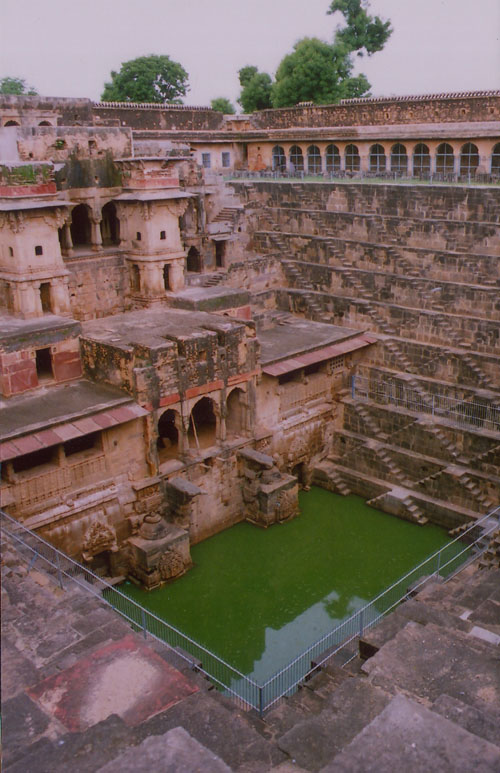CHAND BAORI
Photo
.JPG)
Named after Raja Chanda, a Rajput ruler of the eighth century A.D., this grand baori has imposing design and dimensions (about 19.5 m in depth). It has been provided with double flights of steps on each of its ten landings on the three sides. The fourth northern side consists of a multi-storeyed corridor supported on pillars and two projecting niche-shrines which have beautiful images of Mahishamardini and Ganesa. There is also a very small room known as Andheri Ujala. The baori is enclosed by a high wall having a gateway to the north. The enclosure is provided with verandah on all four sides.
| Notification No. | Act No. LXXI of 1951 dated 28.11.1951 |
| Notification in PDF | |
| Ownership Status | Government |
| Topographical Features | Situated the left bank of Banganga river. |
| 1 | Chandramani Singh (ed.), Protected Monuments of Rajasthan (Jaipur 2002); |
| 2 | K.C. Jaina, Ancient Cities and Towns of Rajasthan (Delhi 1972); |
| 3 | Michael W. Meister and M.A. Dhaky (ed.), Encyclopaedia of Indian Temple Architecture, North India, Period of Early Maturity (Delhi 1991); |
| 4 | Neelima Vahsistha, ‘Art study of the Chand Baori of Abaneri (8th-9th century)’ Proceedings of the Rajasthan History Congress, Sirohi Session, Vol. XIII( 1982); and |
| 5 | Savitri Gupta (ed.), Rajasthan District Gazetteer, Jaipur (Jaipur 1987 |
| Locality | Tehsil | District | State |
| Abaneri | Bandikui | Dausa | Rajasthan |
District



 By Air : Jaipur
By Air : Jaipur By Bus : Abaneri
By Bus : Abaneri By Train : Bandikui
By Train : Bandikui